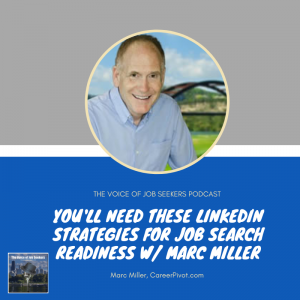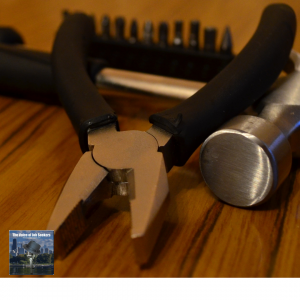
Podcast: Play in new window | Download | Embed
Subscribe: Apple Podcasts | RSS
Marc Miller of the “Repurpose Your Career” podcast, and I address some of the Linkedin questions that come through our inboxes and email. The original version of this show was published on Marc’s Career Pivot site (and you can also get the episode through iTunes). The very detailed show notes can be viewed there as well.
Chime in on our conversation in these three ways:
-
Call and leave a voicemail at 708-365-9822, or text your comments to the same number
-
Go to TheVoiceofJobSeekers.com, press the “Send Voicemail” button on the right side of your screen and leave a message
-
Send email feedback to [email protected]
A few notes:
Marc is a friend of mine, and you know a lot about him already. One thing you may not know is he is recording this episode in Mexico where he and his wife are exploring a move there. You should listen to his other episodes where he goes into detail about their transition.
Go to the link above to read his detail show notes, and you can listen to our show on the player displayed.
About Mark Anthony Dyson
I am the "The Voice of Job Seekers!" I offer compassionate career and job search advice as I hack and re-imagine the job search process. You need to be "the prescription to an employer's job description." You must be solution-oriented and work in positions in companies where you are the remedy. Your job search must be a lifestyle, and your career must be in front of you constantly. You can no longer shed your aspirations at the change seasons. There are strengths you have that need constant use and development. Be sure you sign up to download my E-Book, "421 Modern Job Search Tips 2021!" You can find my career advice and work in media outlets such as Forbes, Inc., Fast Company, Harvard Business Review, Glassdoor, and many other outlets.






